Ecumenism: January 2009 Archives
In the days following the Octave of Christian Unity the news-better, rumor- that there is a possible change in relations between Rome and the traditional Anglicans is good news. Yesterday, the Australian online news service, The Record, published the following article on some very key movements in Catholic-Anglican relations; some suggest these movements if realized, could lead to full communion and could be as cataclysmic as King Henry VIII's break from Rome. Indeed, the Church's work would be a clear desire to be in full, visible communion with those have at the moment imperfect communion. Ut unum sint, the prayer of our Lord, is realizable I believe if we (a) ask the Holy Spirit for the grace to be unified and (b) if we actually work for it. A problem I see is that our church bodies do a lot of talking but resolve little in reality. All these dialogues, all the money spent, all the time used up seems to be a colossal waste at face value. At least that is the picture on this side of the desk. I am confident that the Pontifical Council for Promoting Christian Unity and Centro Pro Unione (to name two key organizations) are doing lots of great work (my certainty is based on the fact that I know some of the people involved). But one of these days I'd like to see a pay-out on the investment. As does the Church hopes, I, too, would like to see the Holy Spirit bring us together in my lifetime. AND wouldn't this be a great thing to rejoice in during the Year of Saint Paul????!!!!!
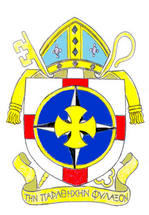 History may be in the making. It appears Rome is on the brink of welcoming close to half a million members of the Traditional Anglican Communion into membership of the Roman Catholic Church, writes Anthony Barich. Such a move would be the most historic development in Anglican-Catholic relations in the last 500 years. But it may also be a prelude to a much greater influx of Anglicans waiting on the sidelines, pushed too far by the controversy surrounding the consecration of practising homosexual bishops, women clergy and a host of other issues.
History may be in the making. It appears Rome is on the brink of welcoming close to half a million members of the Traditional Anglican Communion into membership of the Roman Catholic Church, writes Anthony Barich. Such a move would be the most historic development in Anglican-Catholic relations in the last 500 years. But it may also be a prelude to a much greater influx of Anglicans waiting on the sidelines, pushed too far by the controversy surrounding the consecration of practising homosexual bishops, women clergy and a host of other issues.
The Vatican's Congregation for the Doctrine of the Faith has decided to recommend the Traditional Anglican Communion be accorded a personal prelature akin to Opus Dei, if talks between the TAC and the Vatican aimed at unity succeed, it is understood.
The TAC is a growing global community of approximately 400,000 members that took the historic step in 2007 of seeking full corporate and sacramental communion with the Catholic Church - a move that, if fulfilled, will be the biggest development in Catholic-Anglican relations since the English Reformation under King Henry VIII.
TAC members split from the Canterbury-based Anglican Communion headed by Archbishop Rowan Williams over issues such as its ordination of women priests and episcopal consecrations of women and practising homosexuals.
The TAC's case appeared to take a significant step forwards in October 2008 when it is understood that the CDF decided not to recommend the creation of a distinct Anglican rite within the Roman Catholic Church - as is the case with the Eastern Catholic Churches - but a personal prelature, a semi-autonomous group with its own clergy and laity.
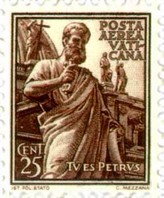 Opus Dei was the first organisation in the Catholic Church to be recognised as a personal prelature, a new juridical form in the life of the Church. A personal prelature is something like a global diocese without boundaries, headed by its own bishop and with its own membership and clergy.
Opus Dei was the first organisation in the Catholic Church to be recognised as a personal prelature, a new juridical form in the life of the Church. A personal prelature is something like a global diocese without boundaries, headed by its own bishop and with its own membership and clergy.
Because no such juridical form of life in the Church had existed before, the development and recognition of a personal prelature took Opus Dei and Church officials decades to achieve.
An announcement could be made soon after Easter this year. It is understood that Pope Benedict XVI, who has taken a personal interest in the matter, has linked the issue to the year of St Paul, the greatest missionary in the history of the Church.
The Basilica of St Paul outside the Walls could feature prominently in such an announcement for its traditional and historical links to Anglicanism. Prior to the English Reformation it was the official Church of the Knights of the Garter.
The TAC's Primate, Adelaide-based Archbishop John Hepworth, told The Record he has also informed the Holy See he wants to bring all the TAC's bishops to Rome for the beatification of Cardinal Henry Newman, also an Anglican convert to the Catholic Church, as a celebration of Anglican-Catholic unity.
Although Cardinal Newman's beatification is considered to be likely by many, the Church has made no announcement that Cardinal Newman will be beatified.
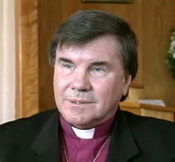 Archbishop Hepworth personally wrote to Pope Benedict in April 2007 indicating that the TAC planned a meeting of its world bishops, where it was anticipated they would unanimously agree to sign the Catechism of the Catholic Church and to seek full union with the Catholic Church.
Archbishop Hepworth personally wrote to Pope Benedict in April 2007 indicating that the TAC planned a meeting of its world bishops, where it was anticipated they would unanimously agree to sign the Catechism of the Catholic Church and to seek full union with the Catholic Church.
This took place at a meeting of the TAC in the United Kingdom. TAC bishops placed the signed Catechism on the altar of the most historical Anglican and Catholic Marian shrine in the UK, the National Shrine of Our Lady of Walsingham in Norfolk, before posting it up in the main street in an effort to gather public support.
Archbishop Hepworth, together with TAC bishops Robert Mercer and Peter Wilkinson, presented the signed items personally to Fr Augustine Di Noia OP, the CDF's senior ecumenical theologian, on October 11, 2007, in a meeting organised by CDF secretary Archbishop Angelo Amato.
Bishop Mercer, a monk who is now retired and living in England, is the former Anglican Bishop of Matabeleland, Zimbabwe. Bishop Wilkinson is the TAC's diocesan bishop in Canada.
TACs Canadian Bishop Peter Wilkinson has close ties to the Catholic hierarchy in British Columbia, which has also met the CDF on the issue. He has already briefed Vancouver archdiocesan priests.
One potential problem for the Holy See would be the TAC's bishops, most of whom are married. Neither the Roman Catholic nor Eastern Catholic churches permit married bishops.
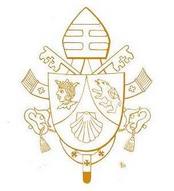 Before he became Pope, Cardinal Joseph Ratzinger discussed the issue of married bishops in the 1990s during meetings of the Anglican Roman Catholic International Commission exploring unity, before the Anglican Church's ordination of women priests derailed it.
Before he became Pope, Cardinal Joseph Ratzinger discussed the issue of married bishops in the 1990s during meetings of the Anglican Roman Catholic International Commission exploring unity, before the Anglican Church's ordination of women priests derailed it.
One former Anglican priest who became a Catholic priest told The Record that, along with the Eastern Churches, which have the same sacraments and are recognised by Rome.
The TAC's request is the closest any section of the Anglican Church has ever come to full communion with Rome because the TAC has set no preconditions. Instead it has explicitly submitted itself entirely to the Holy See's decisions.
Six days prior to the October 11 meeting between TAC bishops and the Holy See - on October 5 - the TAC's bishops, vicars-general of dioceses without bishops, and theological advisers who assisted in a plenary meeting signed a declaration of belief in the truth of the whole Catechism of the Catholic Church.
The declaration said, in part: "We accept that the most complete and authentic expression and application of the Catholic faith in this moment of time is found in the Catechism of the Catholic Church and its Compendium, which we have signed, together with this letter as attesting to the faith we aspire to teach and hold."
Statements about the seriousness of the division between the Anglican Communion and the Catholic Church caused by issues such as the ordination of women priests were emphasised at the wordwide Lambeth Conference held in the UK in 2008.
At the conference, three Catholic cardinals - Walter Kasper, president of the Pontifical Council for Promoting Christian Unity, the Archbishop of Westminster Cormac Murphy-O'Connor and the Prefect for the Vatican's Congregation for the Evangelisation of Peoples, Ivan Dias, the Pope's personal envoy, all addressed the issue.
Cardinal Dias, who favours welcoming traditionalist Anglicans into the Catholic Church, bluntly told the Anglican Communion's 650 bishops that they are heading towards "spiritual Alzheimer's"and "ecclesial Parkinson's".
"By analogy, (Alzheimer's and Parkinson's) symptoms can, at times, be found even in our own Christian communities. For example, when we live myopically in the fleeting present, oblivious of our past heritage and apostolic traditions, we could well be suffering from spiritual Alzheime's. And when we behave in a disorderly manner, going whimsically our own way without any co-ordination with the head or the other members of our community, it could be ecclesial Parkinson."
Cardinal Kasper warned Anglican bishops that Rome would turn to smaller ecumenical communities if the Anglican Communion at large proved unapproachable ecumenically.
This is bad news for the Anglican Communion, but good news for the TAC.
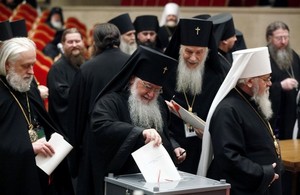 In the course of these days the Russian Orthodox Church is gathering to discuss and pray for a new patriarch. Let us join our prayers together for graces needed to elect the man the Holy Spirit has chosen to lead the Russian Church.
In the course of these days the Russian Orthodox Church is gathering to discuss and pray for a new patriarch. Let us join our prayers together for graces needed to elect the man the Holy Spirit has chosen to lead the Russian Church.
The process of selecting a new father of the Church in Orthodoxy is much different than the way either the Latin or the various Eastern Catholic churches elect a head. Another example of a diversity of gifts given by the Holy Trinity.
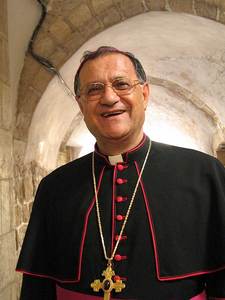 True to itself and its focus on what Eastern Christians have to say, Oasis asked His Beatitude, Archbishop Fouad Twal, the Latin Patriarch of Jerusalem, for his opinion about what is happening in Gaza right now. Oasis met him at this home, in Jerusalem, a few days after the start of Israel's 'Cast Lead' operation. Archbishop Twal's words show a man clearly affected by the situation, concerned that things might be going backward with disastrous consequences for the whole region.
True to itself and its focus on what Eastern Christians have to say, Oasis asked His Beatitude, Archbishop Fouad Twal, the Latin Patriarch of Jerusalem, for his opinion about what is happening in Gaza right now. Oasis met him at this home, in Jerusalem, a few days after the start of Israel's 'Cast Lead' operation. Archbishop Twal's words show a man clearly affected by the situation, concerned that things might be going backward with disastrous consequences for the whole region.
Your Beatitude, what are your thoughts about the latest developments?
In our Christmas message we had given voice to hope for peace in the Holy Land. Things seemed close at hand. More and more private meetings were taking place; pilgrims were coming in greater numbers; the economic situation in the Territories was getting better. Now, things are back where they were years ago. Military solutions are never good; violence begets violence. There is a clear imbalance between the parties. There have been too many innocent victims who have nothing to do with Hamas: women, children, families who had a right to lead a normal life, free. Gaza is under siege by land, sea and air. The city has been turned into an open air prison. Objectively such conditions cannot favour peace and reconciliation. In any case it certainly will not boost hope that violence will stop one day. On the contrary!
Doesn't Israel have a right to defend itself?
Of course! Everyone has the right to self-defence. Israel has won every war in defending itself, but has achieved neither peace, nor security. Counting only on the military option without offering people real alternatives is not a solution. Gaza's siege does not date from yesterday. This applies to Palestinians as well because even the most extreme situation does not cancel one's moral responsibilities vis-à-vis one's actions. But this is true not only for Palestinians.
What is a way out then?
I'll leave that to the politicians and the specialists. It's obvious that diplomatic negotiations have not led to good results as far as violence in Gaza is concerned. And yet we can also see that awareness about solving this problem has increased at the international level. There are three or four good initiatives underway. The world seems to be doing more to solve the problems of the Middle East. Hope never dies, even if it is already very late. The only way out is political. But if there is no good will by the parties involved, all we'll ever get are empty words, promises and meetings without any results.
What should Christians in the Holy Land and around the world do about events in Gaza?
First of all everyone must assume his or her responsibilities. Violence calls for our conversion. Our heart must convert, what we say must change, our outlook must change. Widespread mistrust does not help; it is very destructive.
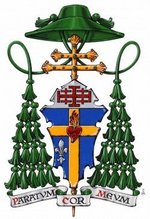 Is the visit by the Holy Father a good idea?
Is the visit by the Holy Father a good idea?
In Jerusalem we are grateful to the Pope for his constant attention and words. We are certain that a visit would help us a lot; the same is true for pilgrims who come to the Holy Land. They can help us remind the international community that joint action is always more courageous; they can exert pressure in favour of greater justice and peace for all. Pious words are not enough; we need acts of courage.
Courtesy of the Oasis International Studies and Research Centre
by Marie-Armelle Beaulieu writing for www.terrasanta.net
The official website of the Custody of the Holy Land has published an interview with an acute observer of the dynamics of ecumenism in the Middle East. Father Frans Bouwen, a member of the White Fathers (also known as the Missionaries of Africa) lives near the church of Saint Anne in Old Jerusalem. We offer Father Bouwen's reflections to our readers.* * *
Pilgrims often return home from the Holy Land with a feeling of having personally experienced the scandal that is division between churches. Father Frans Bouwen, a priest of the Missionaries of Africa in Jerusalem who faithfully joins his fellow White Fathers in fulfilling their calling to pray for unity, has observed the evolution of ecumenical dialogue for the past 40 years. He spoke with us about the matter, providing a glimpse of current affairs.
What is the state of ecumenism in the Holy Land?
That's hard to say in just a few words. But basically, I would say there has been a considerable amount of progress in the past 30 to 40 years. Thirty years ago, it would have been difficult for me to imagine that we would be where we are today. I have witnessed a slow progression that began with Pope Paul VI's visit to Jerusalem in 1964, his meeting with the Orthodox patriarch Athenagoras of Constantinople, and particularly his meeting with the Orthodox patriarch of Jerusalem at the time, Patriarch Benediktos. The progression has been developing little by little ever since.
When evaluating the state of ecumenism in the Holy Land, it is important to consider the various levels and the different types of meetings. There are so many things going on in the area of ecumenism that it is almost impossible to grasp. Some elements that need to be considered are the Holy Places, the relations between hierarchies, and those between the faithful of different denominations. As for parish priests, that all depends above all on individual priests.
I think that we have come a long way, but progress it not guaranteed forever and we regularly make note of the fact that a small event could take us back 5 or 10 years and make us have to start all over again.
Do the heads of churches meet with each other?
The heads of 13 churches and the Father Custos meet together approximately once every two months. This custom was established in 1994, after the publication of the first common memorandum on the signifance of Jerusalem for Christians.
What do they talk about in these meetings?
The meetings are above all characterized by a spirit of brotherhood, and that's very important. The subjects discussed often revolve around shared problems and difficulties that are generally external and often related to the situation in the country - for example: access to Jerusalem, whether or not to pay taxes, freedom of movement for Christians, the issue of obtaining visas for the religious as well as students and volunteers, etc. This is already a major step forward, one that was taken when the first Intifada began in late 1987. It is more challenging for them to broach subjects related to problems that there may be between churches. They are able to adopt a united position when there is an external problem but as far as sensitive issues related to the relations between churches, I have the impression that it's hard for them to approach them directly.
Are these sensitive issues theological in nature?
No. Here in Jerusalem, we do not have all of the competent people that we need to initiate a theological dialogue. The Catholic and Greek Orthodox churches do have such people, but some of the smaller churches aren't as fortunate. Additionally, the Orthodox churches feel that they do not have the legitimacy to operate on that level, so they refer to higher authorities that are outside the country.
Of the issues that there are between churches, mostly between Catholics and Orthodox - who together account for 95% of the Christians in the country, the most sensitive is undoubtedly the well-known issue of proselytism. The Orthodox still criticize the Catholics for proselytizing their faithful. I think that that does not happen anymore, but this is still a very sensitive point of contention in Catholic-Orthodox relations. We Catholics should be humble enough to recognize that our communities are composed in great part of people who were previously part of the Orthodox denomination.
Did proselytism begin with the establishment of the Franciscans in the 14th century?
No, it primarily began after the restoration of the Latin Patriarchate in the 19th century. There were Catholic communities before that, but they were relatively small and lived primarily in the areas surrounding the Holy Places and in some parishes. The restoration of the Latin Patriarchate gave rise to a missionary movement. It's important to place things in the proper context. The missionaries did some remarkable work and certainly contributed to stopping the advance of Islam in certain regions, thanks to schools and to the revival of Christianity that they began in the parishes. But working towards revival or unity in keeping with the mentality of the time also consisted in working towards the "return" of non-Catholics, particularly Orthodox Christians.
The Orthodox Church has not yet come to terms with the fact that these things happened this way at a time when the church did not have enough resources and people. Even today, certain Orthodox leaders continue to suspect us of proselytism. But I think that great efforts have been made since Vatican II and that proselytism no longer takes place. Besides, if we ask them to present us with facts, they tell us about old incidents from 15 to 20 years ago. Nonetheless, the fact remains that this is a wound that they still feel, and we have not been able to heal it by discussing the matter frankly. We Catholics should try to understand the sensitivities of others ; that way, many things will become possible little by little.
To go back to meetings between church authorities, is there no joint reflection among them?
On the occasion of one particular holiday, for example, the heads of the churches jointly reflected on a passage from Scripture for two half-days. The event was enriching, but such activities are still the exception and not the rule.
Given the lack of a theology committee, are there other kinds of dialogues at a lower level?
Yes. Some people want there to be exchanges across pastoral apostolates. We do have such exchanges in some places, but it's very difficult to have them everywhere. We have also addressed the issues of mutual aid among schools and respect for the denominational affiliations of fellow students. Many Orthodox children are educated in Catholic schools because there are more of them and they are more spread out over various regions. This leads us to consider the question of Catholic influence and, in turn, the need to respect the identity of each individual student. Basic education typically lasts 12 years. An Orthodox (or other) child who receives all of his schooling at a Catholic school, who participates in Mass and Confession, may end up feeling more at ease in the Catholic church than in the denomination he was baptized into. The Catholic church knows how to provide Christian education without alienating students from their own churches. This requires a truly special type of attention if we really want to push ecumenism forward.
How are things among lay people?
I think - and this is a sociological phenomenon you will generally find in the Middle East - that the faithful identify more easily as Christians, whereas the clergy identify more with their denominations. For the faithful, what mostly counts is solidarity with other Christians in the presence of non-Christians, and they spontaneously collaborate with each other. Look at how many Orthodox teachers there are in Catholic schools, how many Orthodox members and assistants there are in social organizations like Caritas, and how many are involved in youth movements (the Scouts, the YMCA, the YWCA, the JEC, the JOC, etc.). Everywhere we see Catholics, Orthodox, and Protestants working together. And I think that almost every family participates in this type of interaction. That really helps with the spontaneity of collaboration, which Christians feel is vitally important for their presence. Sometimes they say, "Unity is not an issue. The only thing that still separates us is holiday dates." That's a little simplistic, but that's how they feel.
Are there any differences between the Palestinian Territories and Israel with regard to ecumenism?
No major differences, but I think that in Nazareth, ecumenical relations are generally a little easier and more spontaneous ; they're more fraternal among heads of churches, and I think that's also the case among lay people. This is undoubtedly due to the fact that the atmosphere is different there and that they are farther away from the center, Jerusalem.
So despite the accusations that are made against the church in Jerusalem - against all the churches - ecumenism is alive in the Holy Land?
When people say that division between churches is a scandal, particularly in Jerusalem, where Jesus prayed for the unity of his people and so on, I agree, but I hasten to add that none of the divisions we face originated here. They were all brought in from outside. So the church in Jerusalem is not responsible for them, but it suffers their consequences. It would behoove pilgrims, who claim to be scandalized by the existing divisions, to be well aware of this.
A Handbook of Spiritual Ecumenism (Hyde Park: NY, New City Press, 2007), published by the Pontifical Council for Christian Unity, provides numerous suggestions for Catholics engaging in private prayer for Christian unity:
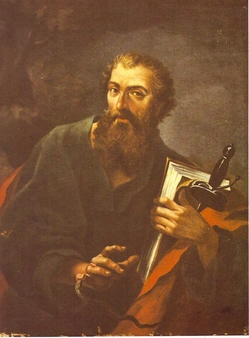 -Give due attention to prayer for unity in the celebration of the Eucharist;
-Give due attention to prayer for unity in the celebration of the Eucharist;
-Insert, where possible, particular intercessions for Christian unity in the liturgical prayer of the Church, including the Liturgy of the Hours and Office of Readings;
-Offer daily prayer or devotions for the intention of Christian unity. Examples can include the Morning Offering, praying the Rosary or Eucharistic adoration;
-Seek Christian unity through fasting, penance and personal conversion;
-Unite hardships and sufferings with Christ for the intention of Christian unity.
The Pontifical Council for Promoting Christian Unity worked with the Commission on Faith and Order of the World Council of Churches for the preparation of materials for the week of prayer.
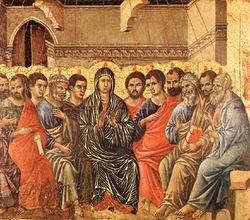
The daily themes are:
Jan. 18: Christian communities face to face with old and new divisions.
Jan. 19: Christians face to face with war and violence.
Jan. 20: Christians face to face with economic injustice and poverty.
Jan. 21: Christians face to face with ecological crisis.
Jan. 22: Christians face to face with discrimination and social prejudice.
Jan. 23: Christians face to face with disease and suffering.
Jan. 24: Christians face to face with a plurality of religions.
Jan. 25: Christian proclamation of hope in a world of separation.
Because we follow Christ and His Church we "pray that all may be one," without forgetting the part that says "so that the world may believe that we are sent."
The Holy Father said: "Let us too welcome this invitation and pray with greater intensity that Christians walk in a resolute way toward full communion with each other. I especially address Catholics throughout the world that, united in prayer, they do not tire to work to overcome obstacles that still impede full communion among Christ's disciples. The ecumenical task is even more urgent today, to give to our society, which is marked by tragic conflicts and lacerating divisions, a sign and an impulse toward reconciliation and peace.
In our particular circumstance we can make a contribution to the work of Christian unity. As we know Christian unity has a priority of the Church through the centuries; it was reaffirmed as a priority of the Second Vatican and it was evidenced during the 26 years of Pope John Paul IIs papacy. Christian unity is a hallmark of Pope Benedict. So I ask, where are you going to make a contribution, with grace, in the work of Christian unity in 2009?
The Pontifical Council for Christian Unity has a useful resource page.
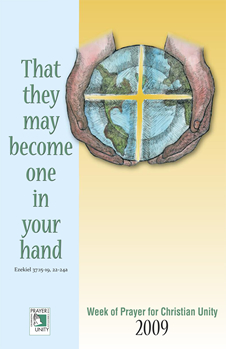 2009 is the 101st observance of the Week of Prayer for Christian Unity. The week begins today and ends on the 25th, the feast of the Conversion of Saint Paul. The theme is "That they may become one in your hand." (Ezekiel 37:15-19, 22-24a)
2009 is the 101st observance of the Week of Prayer for Christian Unity. The week begins today and ends on the 25th, the feast of the Conversion of Saint Paul. The theme is "That they may become one in your hand." (Ezekiel 37:15-19, 22-24a)
The Week of Prayer for Christian Unity 2009 is rooted in the experience of the churches in Korea. In their context of national division these churches have turned for inspiration to the prophet Ezekiel, who also lived in a tragically divided nation and longed for the unity of his people.
According to Ezekiel the division of the people reflected - and resulted from - their sinfulness and alienation from God. They may become again one people by renouncing their sins, undergoing conversion, and returning to God. Yet ultimately it is God who unites God's people by purifying, renewing and liberating them from their divisions. For Ezekiel this unity is not simply the joining of previously divided groups; it is rather a new creation, the birth of a new people which should be a sign of hope to other peoples and indeed to all of humanity.
Resources at Graymoor Ecumenical and Interreligious Institute

